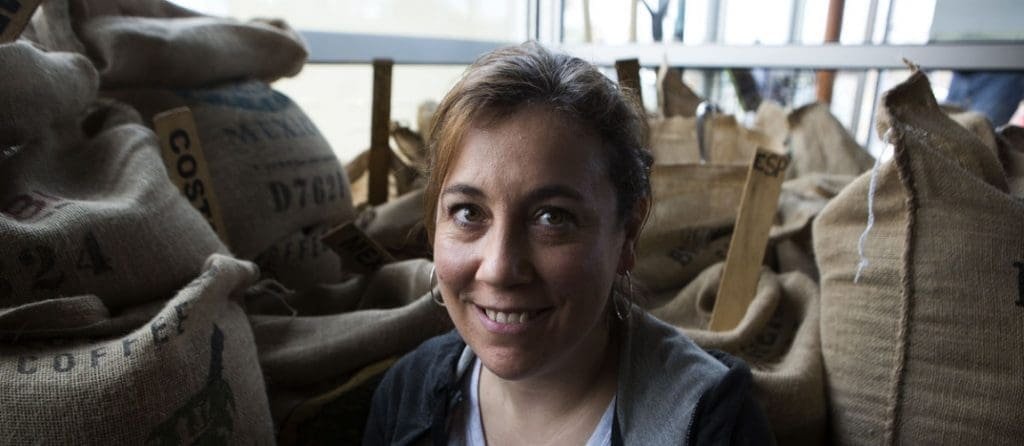Jim Holland
Diane and Jesse O’Connor traveled more than 2,200 miles to gain a new appreciation for something most people take for granted: a well-brewed cup of coffee.
While serious java junkies are known for going well out of their way to find a good brew, Diane and Jesse, mother and son, did them one better, journeying to Central America in a quest for a better understanding of what goes into the coffee beans they grind, roast, brew and sell at the Dunn Bros. Coffee shop in Rapid City.
Diane, originally from Merriman, Neb., purchased the Rapid City Dunn Bros. franchise about 18 months ago.
Jesse is a high school junior who splits his education between online home-schooling courses and elective band and ROTC classes at Rapid City Central High School. His after-school job is as a part-time barista at his mom’s coffee shop at 719 Omaha St.
Minneapolis, Minn.-based Dunn Bros. encourages franchise owners to take what they call “coffee origin tours” to better educate themselves about the critical component they purchases directly from growers — the incredible coffee bean.
Diane said the company emphasizes business relationships with farmers who are sound business owners, treat their laborers fairly and use environmentally sustainable farming methods.
“If we’re going to using this product, we want to be proud of where it’s coming from,” she said. “In order to tell that story we have to experience that ourselves.”
In late January, Diane and Jesse made the 2,230-mile trip to Santa Ana, El Salvador’s second-largest city and a hub for the country’s coffee growing industry.
Jesse said he went into the trip without preconceptions, but stepping off the airplane after arriving in El Salvador’s capital of San Salvador quickly became a case of sensory overload.
The airport terminal was packed with passengers, locals offering to give them rides or carry their bags, and children peddling small bags of popcorn. The 90-minute trip to their hotel in Santa Ana was marked by people running across the highway and dogs everywhere, he said.
“It was overwhelming. It was a lot to take in,” he said.
For eight days they toured a number of small family-owned and operated farms where they received hands-on experience in picking ripe coffee beans, resembling cherries in size and color, and also seeing how the red pulp is removed and the pit (bean) inside is laboriously dried and prepared for market.
They met the laborers who harvest coffee beans, and they picked the beans themselves.
They also used hand tools to turn the beans in a time-consuming drying process. The beans are spread out on concrete and terra cotta beds and turned several times during the day, to promote consistent drying and prevent mold and mildew.
Diane said the experience put a whole new perspective on the amount of work that goes into making a cup of coffee.
“To actually walk through those steps and see the care they put in at each step, and knowing at each step if something goes wrong, that could ruin an entire day’s harvest,” she said.
Diane and Jesse were initially struck by the level of poverty in the region, but a week spent there, meeting the growers and the laborers, put the El Salvadoran lifestyle in perspective.
“They’re a happy people and a happy culture. They live very simply but they’re very content with what they have. There’s a sense of community and pride in what they do,” Diane said.
“It doesn’t affect them in the typical American stereotype of poverty, ‘You must be absolutely miserable.’ They’re not,” she said.
Jesse recalled laborers carrying 150-pound sacks of coffee beans on narrow trails. The work ethic he witnessed had a profound impact.
“They love their lives. They absolutely love their job and they’re excited to go to work. They go to work every day as a family. They can provide for their families and have successful jobs,” Jesse said.
Both Diane and Jesse admit seeing a simple cup of coffee a bit differently after the trip.
“If anything, it’s given us even more of a sense of pride after watching the care the farmers take, everything from their soil to re-establishing those crops, trying to have the best product, to see how much work they put into it and knowing we get to take it from there,” she said.
Jesse was more succinct, saying he will recall the work ethic and contentment of the Salvadoran farmers when things get stressful at school or on the job.
“It was a great trip,” Jesse said. “Coffee’s good.”
Source: Rapid City Journal
Photo: 1. Diane posses in front of bags of coffee beans. Photo by Josh Morgan
2. Courtesy photo






